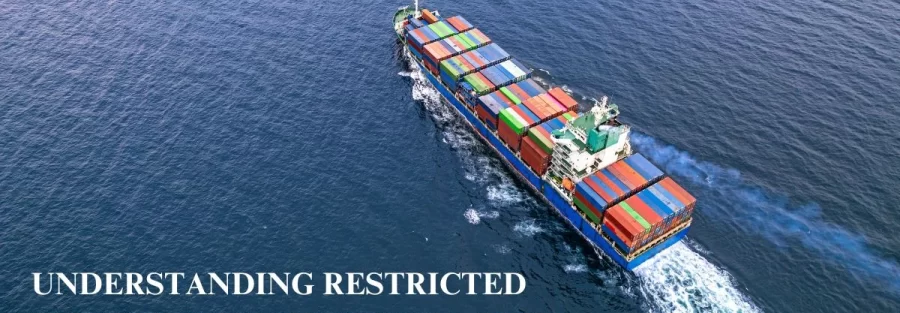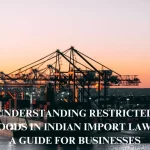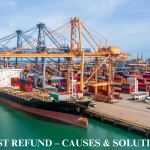India plays a significant role in global trade, as it exports everything from textiles and technology to agricultural products.
However, not all goods are subject to free export. Some goods, referred to as restricted goods, require specific permissions or licenses before being permitted to leave the country.
The restriction of goods helps maintain trade in accordance with national interests, international treaties, and moral standards.
To avoid legal difficulties and gain access to the global market, it is essential for businesses to understand these restrictions.
The blog thoroughly discusses export-restricted goods, their governing framework, and strategies for businesses to navigate these challenges successfully.
Restricted Goods for Export: Definitions and Classifications
What Are Restricted Goods for Export?
Restricted goods are those that cannot be exported without special permission. They differ from prohibited goods in that the latter are banned altogether, while restricted goods have specified procedures that exporters must follow to comply with regulatory requirements.
Classification of Restricted Goods for Export
- Strategic and Dual-Use Goods: Regarding machinery and technology with civil and military applications, strict regulations are imposed on the export of goods.
- Agricultural Products: Restrictions on some seeds, grains, and organic exports may be established to protect food safety and biodiversity.
- Cultural Heritage and Antiquities: The export of objects of historical value, such as rare manuscripts and antiques, is tightly controlled to prevent illegal commerce and loss to cultures.
- Wildlife and Animal Products: Animal products derived from protected species or endangered animals are subject to strict restrictions for export.
- Toxic and Chemical Goods: Chemicals governed by international treaties, especially the Chemical Weapons Convention (CWC), require special permissions for export.
Legal Framework Governing Restricted Exports
Export regulations in India are governed by policies and statutes such as the Foreign Trade Policy (FTP), the Customs Act of 1962, and international treaties, one of which is the Convention on International Trade in Endangered Species (CITES).
Regulatory Authorities and Compliance for Exporters
Key Regulatory Authorities
- Directorate General of Foreign Trade (DGFT): Authority to issue licenses and permits for restricted exports.
- Customs Authorities: Enforce export law at ports and verify that goods comply with Indian laws.
- Ministry of Environment, Forest, and Climate Change: Regulates the export of wildlife and hazardous materials.
- Archaeological Survey of India (ASI): Oversees the export of cultural artifacts and antiquities.
Compliance Obligations for Exporters
To undertake the export of restricted goods lawfully, entities must:
- Obtain all requisite licenses from DGFT.
- Accurately classify the goods under the ITC-HS code system.
- Submit all documents, including shipping bills and compliance declarations.
- Packaging and labeling must adhere to the specifications set by the appropriate authorities.
Consequences in Case of Non-Compliance
Exporters who violate the rules may face:
- Seizure of goods at ports.
- Cancellation of export licenses.
- Heavy fines and lawsuits.
- Damaged reputations and strained international relationships.
How Curated Exim Consultants Simplifies Export Compliance
Curated Exim Consultants understands that navigating the intricacies of restricted goods for export is not always an easy task. With this understanding, the firm provides expert support to businesses.
Expertise in Licensing and Documentation for Export
Curated Exim Consultants assists with the acquisition of export licenses from the DGFT while maintaining documentation to ensure smooth approvals.
Compliance Custom-Designed for Export
The firm offers tailor-made solutions that fulfil specific business requirements while ensuring compliance with regulations such as ITC-HS classification and packaging requirements.
Risk Mitigation and Advisory
Curated Exim identifies various types of risks regarding the export of restricted goods and recommends a wide range of strategies that can be employed to mitigate financial and legal liabilities.
Training and Knowledge Dissemination on Export Controls
The team empowers businesses through regulatory change updates, aids, and training sessions to ensure exporters are well-versed and compliant.
Conclusion
The export of regulated goods is crucial for national security, the protection of cultural heritage, and the promotion of ethical trading practices.
For the enterprises involved, compliance is less a legal obligation than an act of sustainable and responsible trade.
The expert assistance of Curated Exim Consultants enables businesses to meet all these challenges with confidence, ensuring smooth export processes and seizing global opportunities.
Begin your journey towards successful and compliant export processes with Curated Exim Consultants as your trusted partner.




